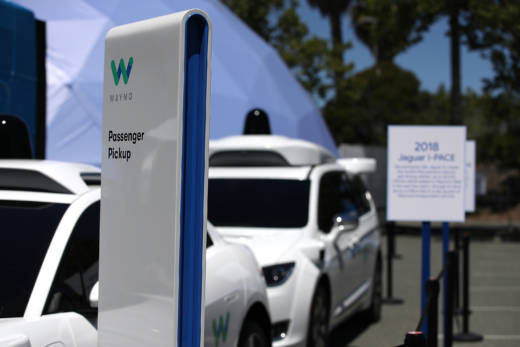More than 50 firms have gotten DMV clearance to test autonomous vehicle technology on public roads with a driver behind the wheel. In theory, and with the proper CPUC permit, any of those firms could line up now to carry members of the general public.
But so far, the DMV says, only two firms have applied for permits to operate fully autonomous/totally driverless vehicles on the state's public roads. The Department of Motor Vehicles won't identify those companies, but a report in IEEE Spectrum last month based on state Public Records Act requests identified the applicants as Alphabet's Waymo and a U.S-Chinese startup called JingChi.ai.
A DMV spokesperson said in an email Thursday that two driverless AV applications are under review and there is no timeline for approval.
The CPUC's newly approved pilot project also carries another important condition: It's open only to companies registered as transportation charter-party carriers, or TCPs -- firms that own and operate their own fleets
That's an important detail in part because it will affect the ability of the big players in the ride-hailing business, Uber and Lyft, to deploy autonomous vehicles to carry passengers. Those firms currently hold permits as transportation network companies (TNCs) whose business model relies on contracting with drivers using their own vehicles to provide service.
Requiring operators of drivered AVs to hold a TCP permit also imposes more stringent conditions than those for TNCs. For instance, TCP drivers are barred from consuming or being under the influence of drugs or alcohol while on duty and they're subject to rigorous ongoing review of their driving record.
A CPUC spokesperson was unable on Thursday to say how many of the dozens of companies holding DMV permits to test "drivered" autonomous vehicles already hold TCP permits.
In its filing with the state, Waymo anticipates a driverless rollout that could involve several Silicon Valley towns, including Palo Alto, Mountain View, Los Altos, Los Altos Hills and Sunnyvale. Both DMV regulations and the newly adopted CPUC decision require the company to notify local jurisdictions before launching their vehicles onto the roads.
The company's DMV application lists a fleet of 52 Chrysler Pacifica plug-in electric hybrid minivans. Passengers during the testing period would include Waymo and Alphabet employees and contractors and "members of the public as passengers ... without any
fee charged."
One indication of Waymo's ambitions for its driverless vehicle services came Thursday, when the company announced an agreement with Fiat Chrysler to purchase 62,000 more of the Pacifica plug-ins. The two companies are reportedly also discussing retail sales of autonomous vehicles to individual customers.
